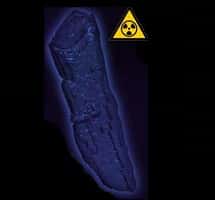Chemical Phenomena with Examples in Chemistry
We explain what chemical phenomena are, their characteristics, classification, and examples. In addition, physical phenomena.
What are Chemical Phenomena?
Chemical Phenomena are thermodynamic processes in which two or more substances change their molecular structure and generate new substances, called products, whether chemical elements or compounds. Chemical phenomena are also called chemical reactions or chemical changes, terms that are basically synonyms.
In chemical phenomena, there is a significant change in matter, which is never the same at the beginning of the reaction as at the end, so that it is usually irreversible and not always observable to the naked eye. On the other hand, the proportions of the matter and energy involved always remain constant.
Chemical reactions are common in our day to day and many of them are key in the manufacture of products, obtaining energy, and other processes of importance to society.
Types of chemical reactions

Chemical reactions are classified, first and foremost, according to the type of chemical elements involved. We will have, thus, organic and inorganic chemical reactions, and each type of classifies independently:
Inorganic reactions. They can be of four different types:
- Synthesis or addition reactions. Two reagents combine with each other to result in a different substance.
- Analysis or decomposition reactions. A complex substance reacts with another (or a reagent) and unfolds into two of its simplest components.
- Displacement reactions. A compound or element occupies the place of another within a larger or more complex compound, replacing it and leaving it free.
- Double substitution reactions. Two reagents exchange compounds or chemical elements simultaneously.
Organic reactions. Organic reactions, on the other hand, depend on the type of organic compound in question, since each functional group has a range of specific reactions: alkanes, alkenes, alcohols, ketones, aldehydes, etc.
Examples of Chemical Phenomena

Any chemical reaction is a good example of chemical phenomena, even those that occur inside our bodies. We can mention some simple cases, which are:
- The oxidation. This phenomenon can be seen in metals, especially in saline environments (since salt acts as a catalyst, accelerating the reaction between oxygen and metal), and consists of the formation of a layer of urine (or oxide) on the surface of the metal rusty. It also occurs inside our bodies, since with the oxygen we take when breathing, we then proceed to oxidize the glucose molecules, thus obtaining chemical energy.
- The combustion. The classic example: we light a paper with a match and watch it turn to ashes. These types of reactions involve a combustible material (paper) and an oxidizer (oxygen from the air ) in the presence of a temperature rise.
- The corrosion. The chemical burns, the fruit of the contact of an acid or a strong base with the skin (or any organic matter ), that is to say, of a chemical reaction in which these substances violently reduce the organic matter.
- The production of salts. When an acid and a metal are mixed, as in the case of spilling the contents of old batteries into the remote control compartment, a salt of some kind is produced, depending on the metal and the acid. Chemical Phenomena
Chemical Phenomena and physical phenomena

The difference between physical phenomena and chemical phenomena has to do with the type of change in matter. Physical phenomena are changes of structure, of state, in which the substance remains chemically the same.
For example, if we freeze water, we can turn it into a solid (ice), while still being made up of hydrogen and oxygen.
Instead, chemical phenomena reorganize the molecular nature of matter, building and destroying atomic bonds and creating new substances. This is because a chemical reaction, usually irreversible, occurs in which substances totally different from the initial ones are obtained. Chemical Phenomena
For example, after burning a paper and turning it into ashes, we cannot restore it to its original condition.
You May Also Like:




